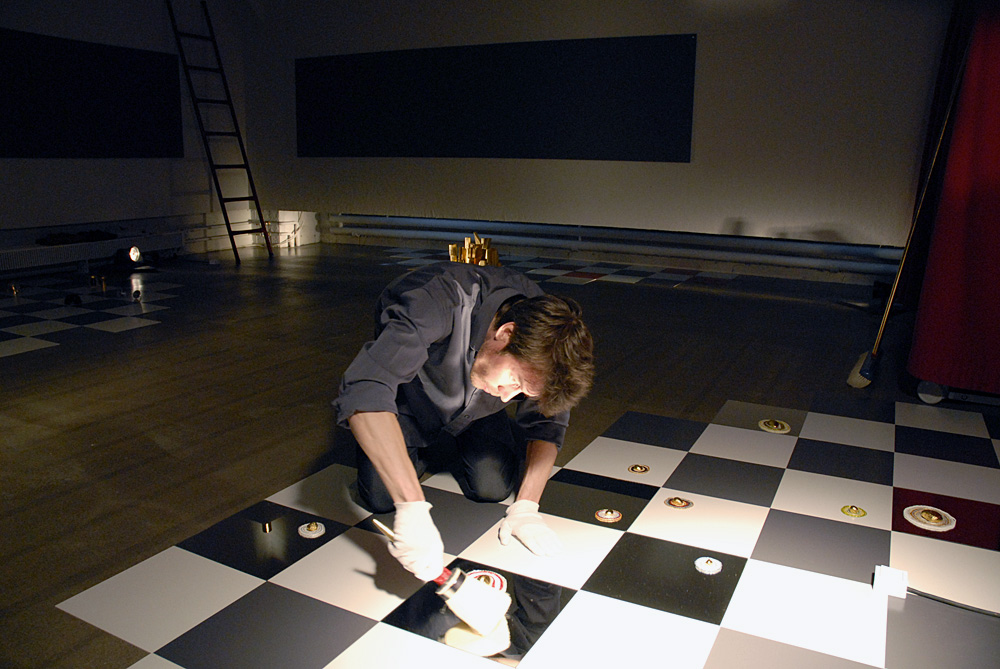
Today morning I thank artist Teemu Mäki, who, in his essay Toolbox (Työkalupakki, in Näkyvä pimeys, 2005, lame translation mine), deals with a subject, that is not unusual for me:
“Giving up admiration for and demand of virtuosity is above all a philosophical decision. A virtuoso artist masters her/his instruments, and thus rises above her/his materials and works. This equals Platon’s (427–347 BC) vision of philosopher as holder of absolute ideas. But the Platonic king philosopher is challenged by the Socratic polypragmatist, a multi-disciplinary aficionado (lover), who surrenders to conversation, because s/he does not know. The king philosopher (virtuoso) thinks that serious cogitation (making of arts) requires perfect mastership of context, method and material. This is why s/he either specialises – philosopher in one subject, artist in one instrument and discipline – or makes her/his understanding of the wholeness of being so narrow, that s/he can control it fully. On the other hand, the polypragmatist confesses, that philosophy, as well as art too, is conversation on the structure of world and being, without fixed method and final answer.”
I add here a phrase I think President Mauno Koivisto (1923–2017) once said: “artist must have something to say and be able to say it”. I’ve always thought that I meet the criterion. And I am a Socratic polypragmatist, defined by Mäki, no doubt about that. There is no conflict between the two.
Photo: Virve Laustela (Cinderella)

 Suomi
Suomi